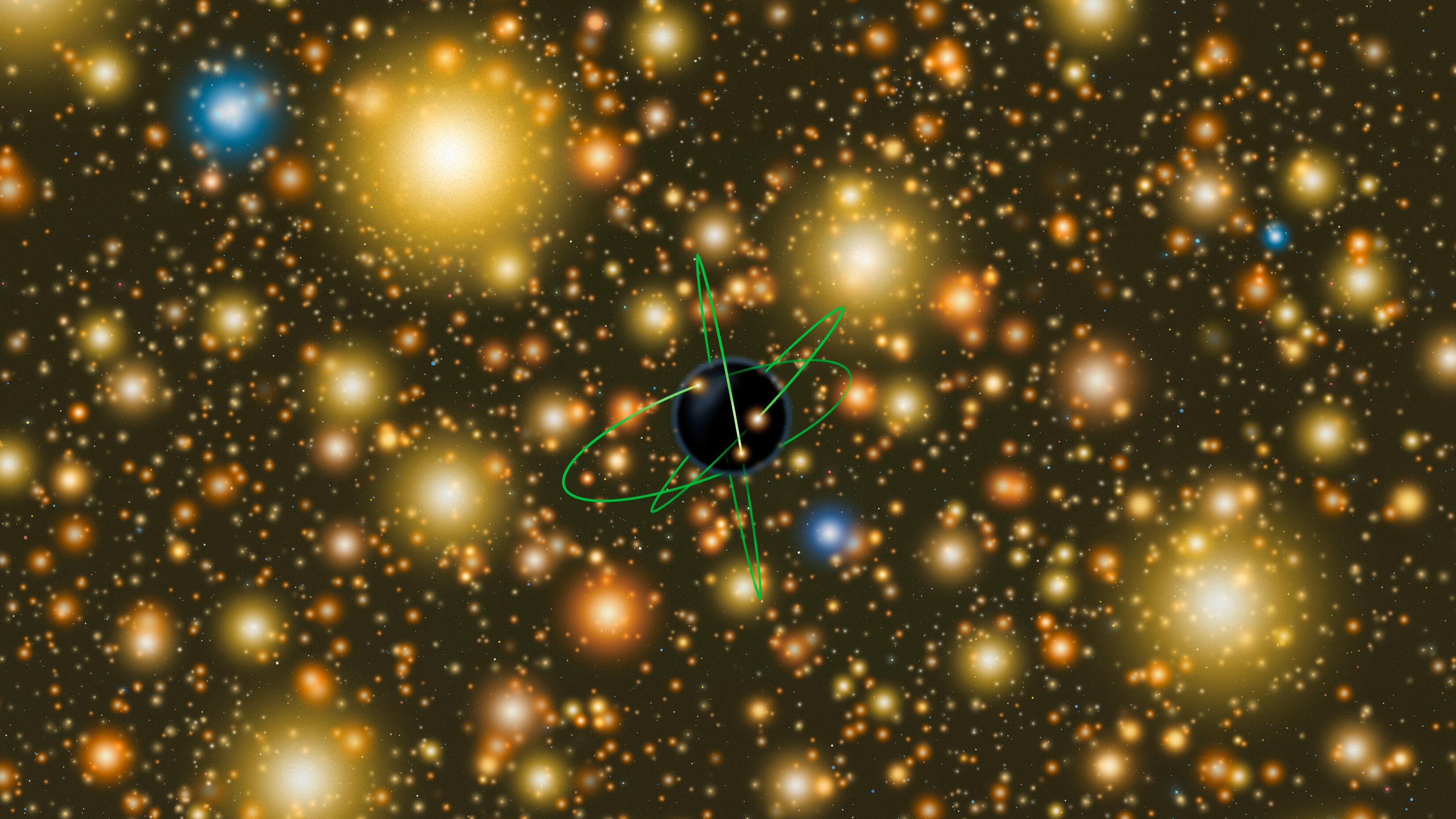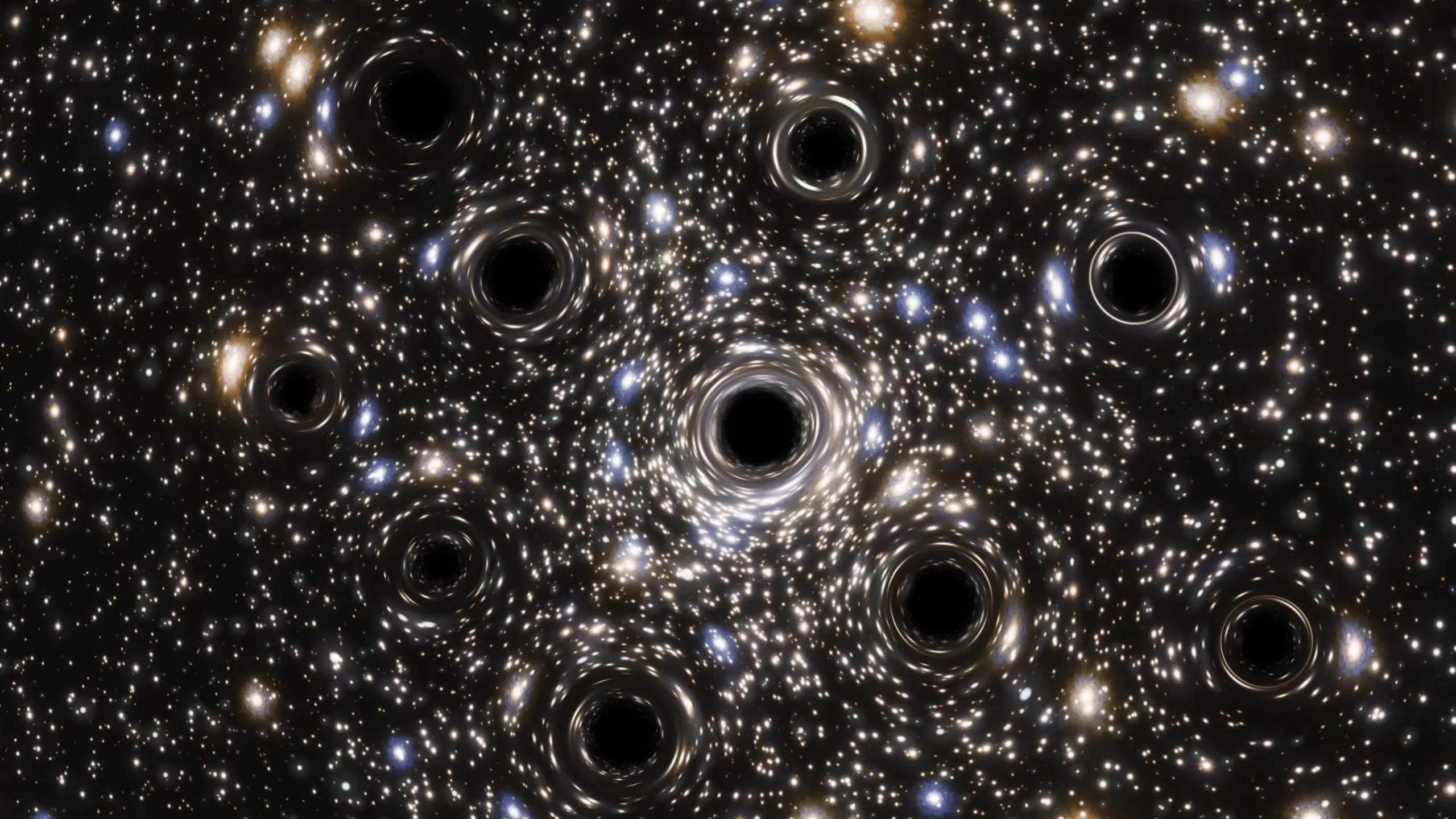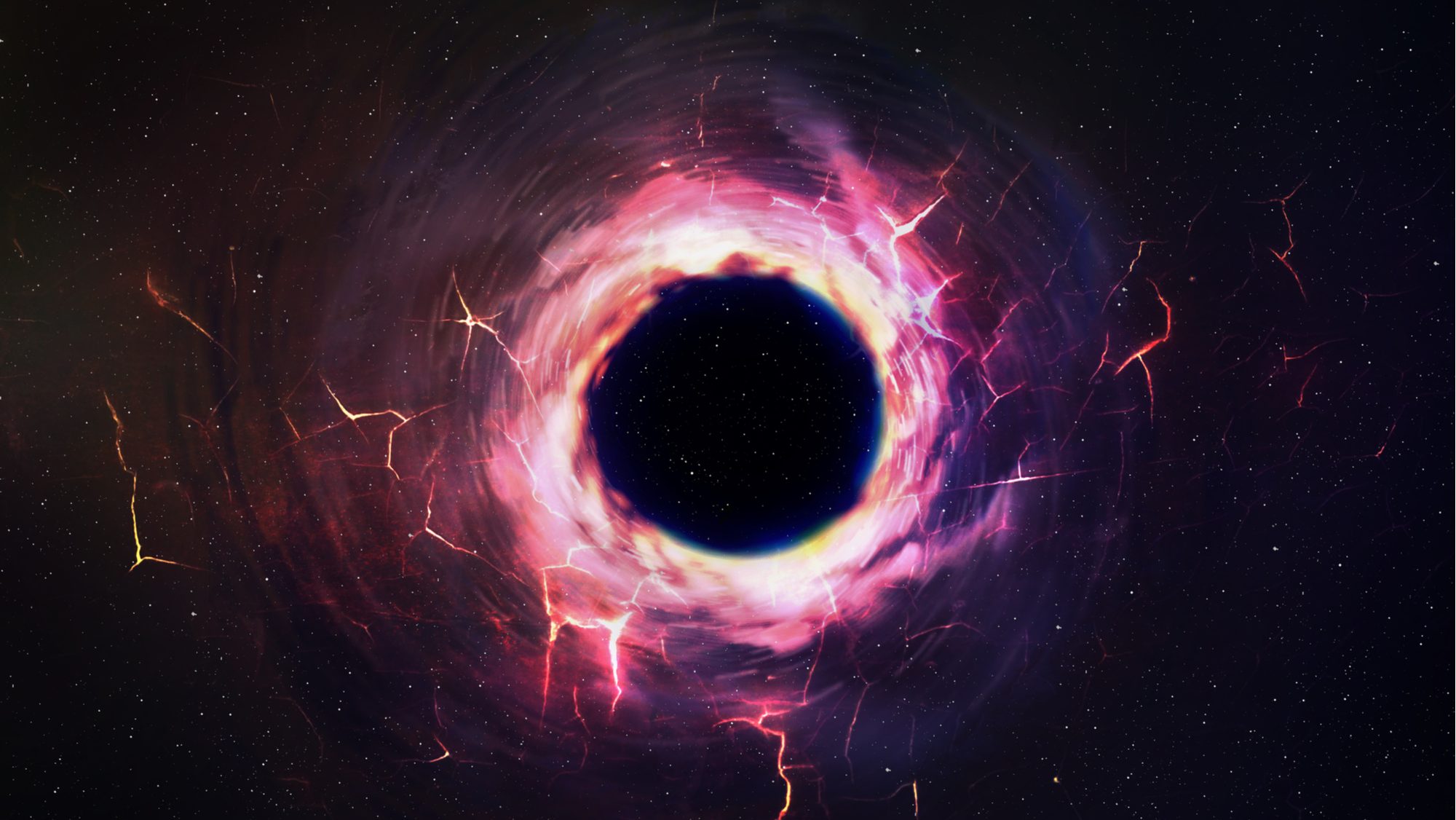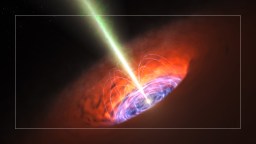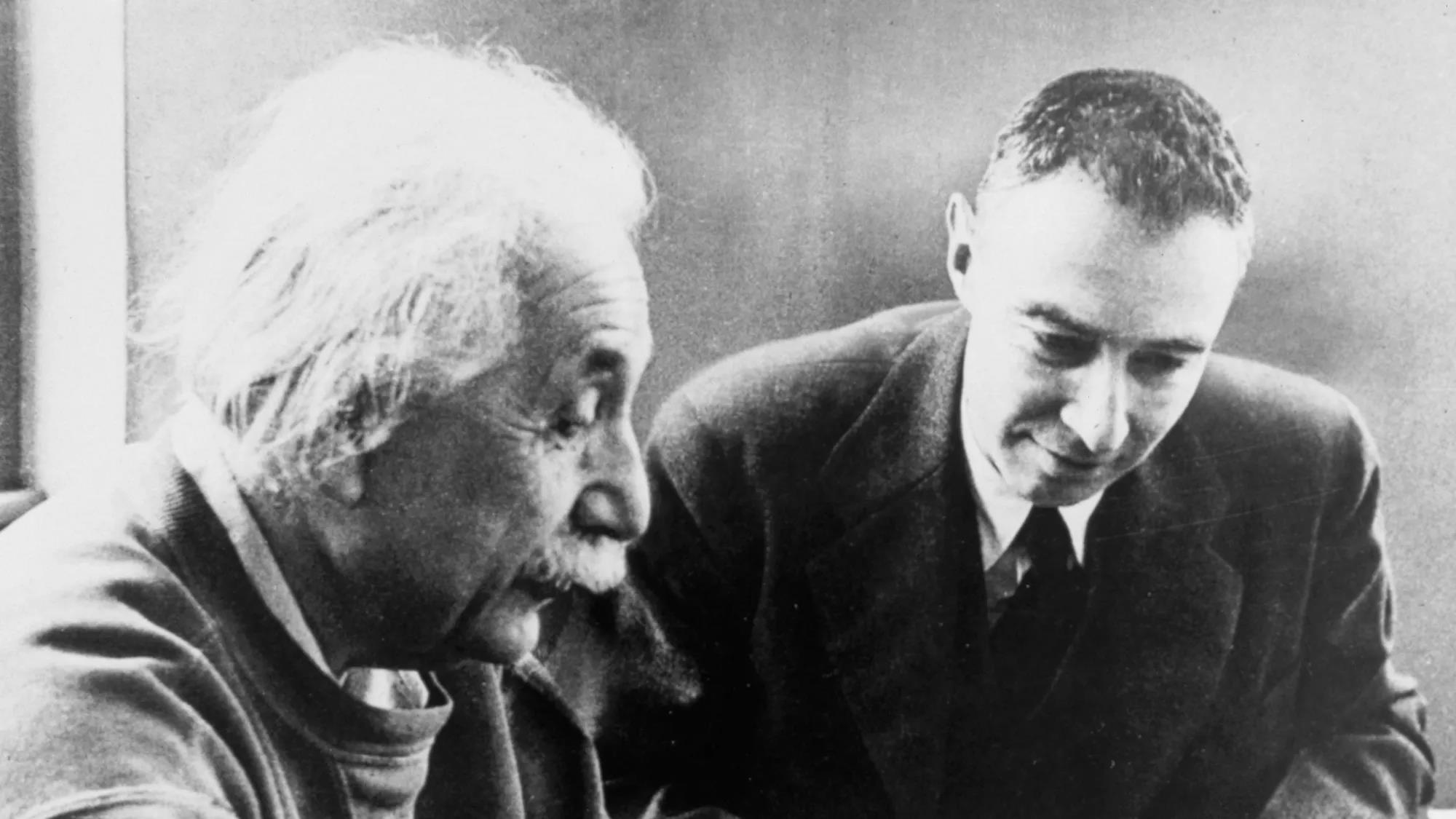MICHELLE THALLER: Black holes really are kind of getting to the very heart of our physics. And I believe that they're kind of showing us the way that eventually we're going to need different physics and new physics. People ask questions like, "What happens inside a black hole?" Or even, "What happens at the very boundary of a black hole, the event horizon, when light is absorbed?" And honestly, our physics is telling us a lot of contradictory things. And our image of what an event horizon really is may be changing. People like Stephen Hawking and Leonard Susskind have recently come up with this idea that a black hole should not be able to destroy information. O.K., what do we mean by information? Information can be almost anything.
All of the different atoms in my body have angular momentum, they have charge, they have mass. There's all sorts of little bits of information that make me me. At the quantum mechanic level, the tiniest of levels, there are different amounts of energy, there are different probabilities that are contained in the structure of my matter. And information, in some ways is a form of energy. It's actually a way that you can describe something which is somehow, in a strange way, a higher energy state than not being able to describe something. And so one of the questions is, "If energy really can't be destroyed energy itself is something that is intrinsic in the universe, you can't really created or destroy it is it possible that information is the same way? Is there really no way to actually destroy the information about what all of my subatomic particles are doing right now?"
So black holes kind of stare you right in the face. What a black hole supposedly does is it absorbs everything. Space and time bend into a black hole so that nothing can escape. That means that any information about the material that fell in is gone. The only thing we know about it is that as a black hole absorbs material, it gets more massive. It actually adds that mass to the mass of the black hole. And as that mass increases, the event horizon becomes larger. Basically, the area where space is so curved that you can't get out begins to extend the more massive a black hole is. The most massive black holes we know of in the universe are many billions of times the mass of our sun. And the physical extent of this event horizon is about the size of our solar system, maybe like out to the planet Pluto.
So is it possible, then, if everything goes into a black hole and nothing ever comes out, space and time go inside the black hole and don't come out? What happened to that information? And this has begun to make a lot of people wonder if we really have thought of black holes the wrong way. Maybe there isn't an event horizon in the true sense. I actually had a friend of mine that studies black holes say, "Well, I'm not sure if they're black. They may be very, very dark navy blue." And what he meant by that is, maybe there are some tricks to actually get information out of a black hole. Maybe there really is some form of energy that can leak away from the black hole over time. Now, Stephen Hawking wondered if quantum effects very near the event horizon could actually separate something called virtual particles, the energy of space itself. If you're familiar with Einstein's equation, E equals MC squared, energy equals mass times the speed of light squared. Energy and mass are the same thing. They're equivalent.
You can actually make mass into energy, and you can make energy into mass. Around a black hole, where there's very hot gas, very high temperatures, very strong magnetic fields, perhaps, there's a lot of energy. And that energy can actually manifest itself as particles, mass. And the energy always creates particle/antiparticle pairs. They're called virtual particles. And matter and antimatter, the thing you know about it is that it annihilates immediately. So these tiny little particles come into existence, then annihilate, and you're back to energy. And this happens all around us all the time. So, if this happens near a black hole, it's possible one of these little particles can go into the black hole and the other one escapes. And all of a sudden, there's a particle that shouldn't be there. The universe basically has a new particle, energy from nowhere. And how can that work?
And the information theory people say that what happens is that energy has to come out of the black hole. The black hole's mass begins to decrease if there is this poor little orphan particle that shouldn't have been there in the first place. So over time, tiny particle by tiny particle, These black holes can evaporate away. And maybe there's something about those virtual particles that contain some information about the black hole and what fell into it. It even gets stranger than that, because a lot of people think that time goes slower and slower as you approach a black hole, till, at the event horizon, time basically stops. So instead of anything really ever falling into a black hole, what the event horizon may be is some sort of shell of information.
Things are stopped in time as they fell into the black hole. And right at that boundary, there is almost kind of a sphere, a two-dimensional surface that somehow contains all the information about what's inside the black hole. And this reminded people of something that the humans invented, called a hologram. Now, a hologram is a two-dimensional object. You can make it out of glass or a piece of film. And you shine a light through it, and all of a sudden, there seem to be three-dimensional projections. And the idea is that are we looking at some fundamental way the universe stores information. Around a black hole, where space and time have been crushed out of existence, could there be a shell of information, something like a hologram?
And a lot of people began to wonder, maybe that's the way the universe works on a larger scale. Maybe black holes are showing us, intrinsically, what the underlying nature of reality is, that there really is a two-dimensional surface of something that contains all information about the entire universe. Maybe in some way, we are part of this giant hologram. And I should mention that the word, hologram, in no way implies that somebody made the hologram. We're just talking about the universe may really be information contained in a two-dimensional structure, not the three dimensions that we're aware of now. This all sounds incredibly strange. I'm always a little bit afraid to even talk about it. But I think that the thing to really kind of gain from this is that black holes are staring us right in the face. We're now observing them.
They're right there. And we cannot really describe how the universe should work with one of these things. They don't make sense. The universe shouldn't be able to lose information. So how do you get information when space itself are bent in and nothing comes out? Black holes may be the key to where the next physics has to go. We all know that we need a next Einstein, a next quantum theory, something that actually describes how gravity works in very intense situations like a black hole. Now we're actually observing black holes well enough that we really have to get on this. We really have to figure out how the universe works around one of these things. And we may end up learning what the universe itself really is.


